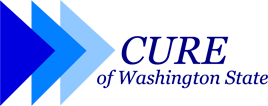Government Nannies at Your Door
“We’re from the Government and we’re here to help you.”
Do those words give you a warm, fuzzy feeling? The sponsors of the “Welcome to Washington Baby Act” think so. “A welcome hug from the State of Washington,” is how one Legislative Aide described the bill. The bill in the House of Representatives is HB 1771 and the companion bill in the Senate is SB 5683. It would establish a universal home visiting program for families of newborns. There are many disturbing aspects to this bill.
Read more.


